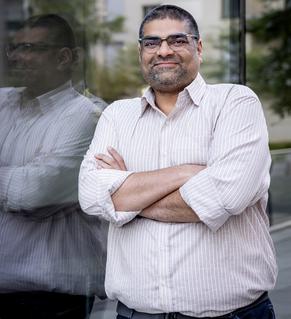Profile
- Name:
Vaibhav Sanghvi
- Professional background:
PhD Researcher at Technical University of Berlin, Master’s degree in Business Administration, and Master’s degree in Business Engineering (Production and Manufacturing)
- Business idea:
Manufacturing innovative electric motors without the use of rare earths
- Company name:
Torev Motors
- Website:
- Business site:
India

Electric motors are at the heart of everything from cars to household appliances. Nearly all of them rely on rare earth magnets which are difficult to extract and process, very carbon intensive when mined, and rely on a near-monopoly supply chain dominated by a limited number of countries. These challenges are particularly relevant as the world moves towards electric mobility.
Torev Motors sees this as an opportunity for innovation. The start-up is developing a new kind of electric motor that eliminates the need for rare earth magnets. Instead, the patented design uses a “virtual” magnet architecture that increases both efficiency and power output without increasing size. “The simplicity of the design is its strength,” shares Vaibhav.
The technology is still in its early stages, but it has already received international attention. The next step is piloting this technology with several multinational vehicle manufacturers and suppliers.
The motor is intended for broad application, from electric vehicles and marine transport to industrial applications. The business model also supports a circular economy. According to Vaibhav, their motors are expected to be more economical, and easier to manufacture and maintain than those using rare earth magnets, potentially making clean mobility more affordable and scalable. “Our idea is global by nature,” he explains. “One country may supply raw materials, another may manufacture, and a third may use the final product. We want to build a global network that makes this exchange possible and sustainable.”
Originally from India, Vaibhav has lived in Germany since 2012. His experience navigating ground realities in India and Germany gives him a unique perspective on cross-border innovation. Torev’s long-term vision includes helping countries in Asia and the European Union – and later globally – adapt to greener mobility. “By 2035, millions of older vehicles will need to be repurposed or recycled. We want to bridge that gap by offering a solution that’s not just more efficient, but also more sustainable,” he says.
Having grown up in India, I understand how things work on the ground. But having lived in Germany, I also know how to meet technical standards and customer expectations here. That combination helps us identify risks and find practical solutions.
Further information on the offers available to the Indian diaspora can be found below.